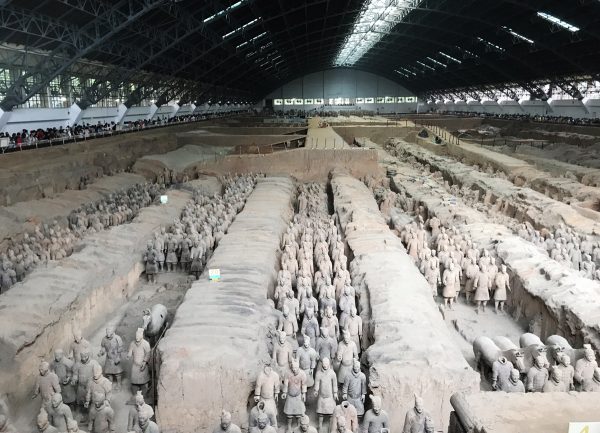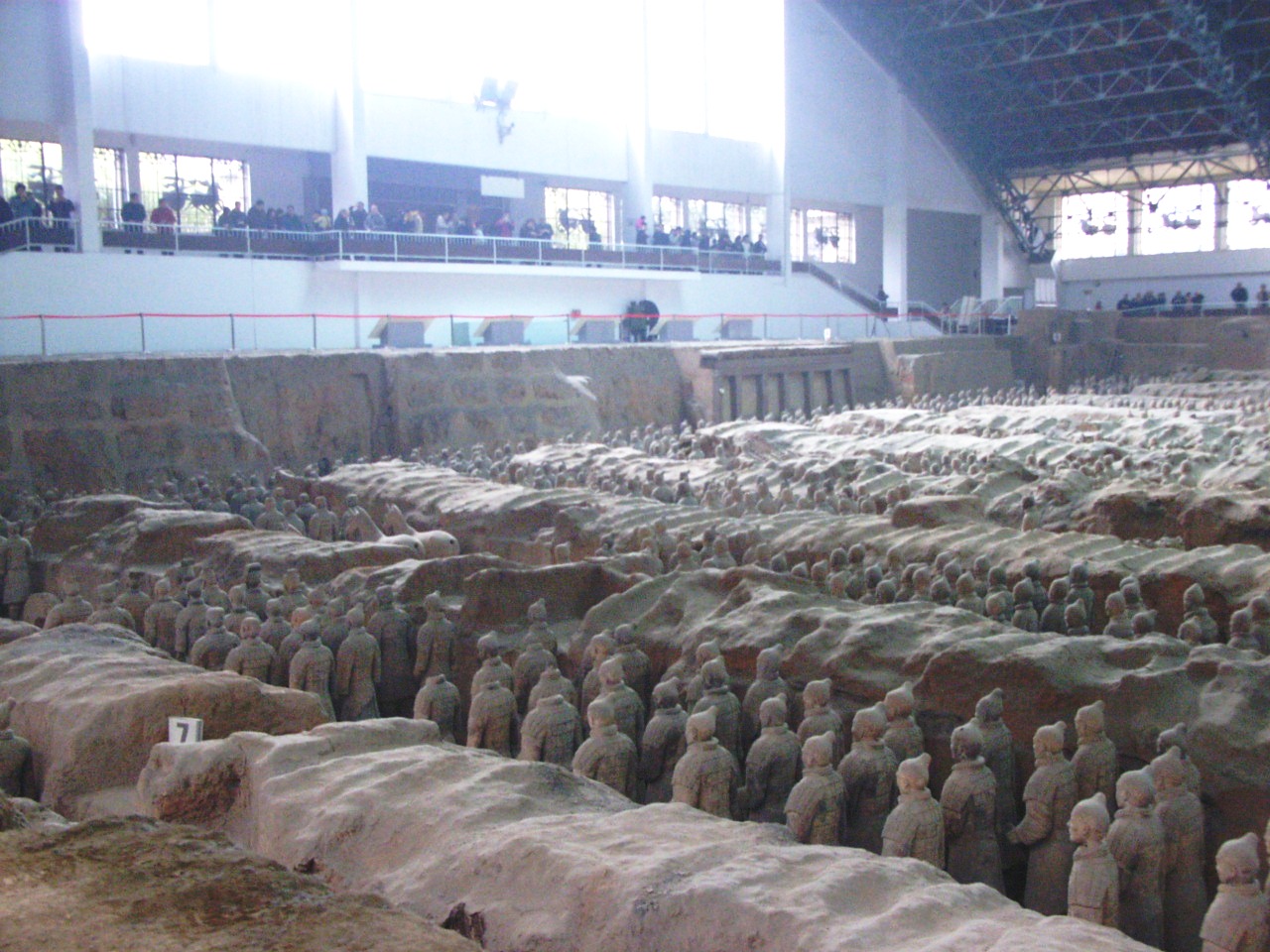Displayed in the showcase the kneeling archer is believed to be the most valuable of the terracotta army as it is one of the rare ones in well preserved condition with clearly visible details and colour pigments on the sculpture.
Terracotta army roof collapse.
Some of the figures in pit one and two show fire damage while remains of burnt ceiling rafters have also been found.
These together with the missing weapons have been taken as evidence of the reported looting by xiang yu and the subsequent burning of the site which is thought to have caused the roof to collapse and crush the army figures below.
These together with the missing weapons have been taken as evidence of the reported looting by xiang yu and the subsequent burning of the site which is thought to have caused the roof to collapse and crush the army figures below.
The terracotta figures currently on display have been restored from the fragments.
Still under excavation it is perhaps even more striking because we see the wooden roofs on more or less collapsed trenches and broken statues lying in disorder.
Terracotta army pit 1 in xi an china photo credit.
These together with the missing weapons have been taken as evidence of the reported looting by xiang yu and the subsequent burning of the site which is thought to have caused the roof to collapse and crush the army figures below.
Terracotta army or terracotta warriors chinese.
The terracotta army was discovered approximately 1 6 kilometers 0 99 mi east of the qin emperor s tomb mound at mount li lishan a region riddled with underground springs and watercourses.
They smashed many of the soldiers looted most of the weapons and set the pits ablaze.
The terracotta figures currently on display have been restored from the fragments.
The terracotta figures currently on display have been restored from the fragments.
For the missing weapons it is suspected that xiang yu the military leader who overthrew the dynasty looted and burnt the site causing the roof to collapse and crush the figures.
The fires caused the roofs to collapse onto the statues crushing them.
These together with the missing weapons have been taken as evidence of the reported looting by xiang yu and the subsequent burning of the site which is thought to have caused the roof to collapse and crush the army figures below.
The terracotta figures currently on display have been restored from the fragments.
It is a super large collection of life size terra cotta sculptures in battle formations reproducing the mega imperial.
A great deal of damage occurred circa 206 bce just a few years after the death of qin shi huang when rebels fighting for control of china broke into the pits of the terracotta army.





























